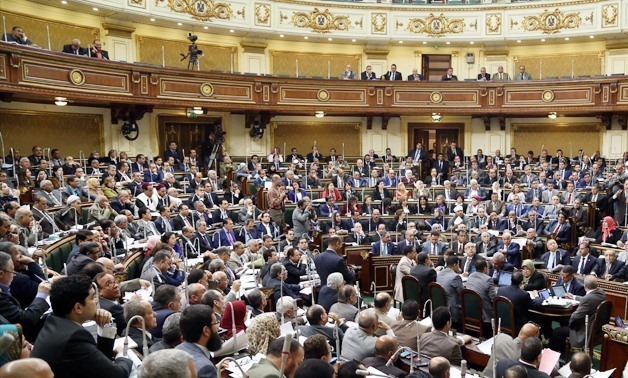
FILE - Egypt's House of Representatives
CAIRO - 18 January 2018: After months of long discussions on the draft law to protect personal data, Egypt's House of Representatives will reach a firm decision regarding the final draft of its articles in the coming period.
On October 30, 2017, 60 parliament MPs had submitted a proposal to the Parliament to adopt a new law protecting personal data, as previously Egypt did not have a law to regulate personal data protection.
Since then, Egypt’s Parliament has undergone discussions to review and amend the proposed Data Protection Draft Law in the presence of interior, foreign and defense ministers to submit it to the General Committee of the Parliament for the initial approval.
The draft law aims to be committed to Article 57 of the Egyptian constitution, stipulating that citizens’ private lives should be safeguarded; and postal, telegraph, e-correspondence, telephone calls and any other means of communication should not be examined by any entity without the prior approval of their owners, except in the case of a judicial order.
This target will be achieved under the draft law through establishing a body to protect personal data on ethnicity, political ideology, children, health, religion, marital status and crimes, by criminalizing personal data processing.
To avoid the processing of personal data without consent, the law determines the way information technology, commercial and communication companies deal with personal data by obligating them to obtain prior consent from the intended recipients before dealing with their data.
In addition, Secretary of Egyptian Parliament's Information and Communications Technology Committee Ahmed Zidan suggested that the draft law should also include an article concerned with protecting personal data on social media.
However, in the previous discussions on the draft law’s Article 3, many concerned agencies have called for not applying the article to the defense and interior ministries for reasons related to national security.
Zidan said that representatives from the Interior Ministry called for not applying the law to the personal data and information collected by the ministry for reasons related to national security, especially when dealing with cases of drug trafficking and terrorism. The committee approved the ministry’s request.
During the discussions, the Ministry of Foreign Affairs also requested not applying the draft law to the ministry; a request which is set to be considered by the committee.
The committee also decided to restructure Article 4 on the rights of individuals that controls the access to or the usage of personal data.
Across the world, laws are being drawn up and refined to protect personal data in the marketing and social media companies.
In the United Kingdom, UK data protection laws were drafted under Digital Minister Matt Hancock in August 2017. According to data protection laws in the UK, citizens could oblige social media to remove their personal data or withdraw their consent for their personal data to be used. If firms violate these laws, they will face massive fines.
UK will apply the European Union’s General Data Protection Regulation (GDPR) that will come into effect on May 25, 2018, introducing new requirements for how organizations would process personal data.

Comments
Leave a Comment